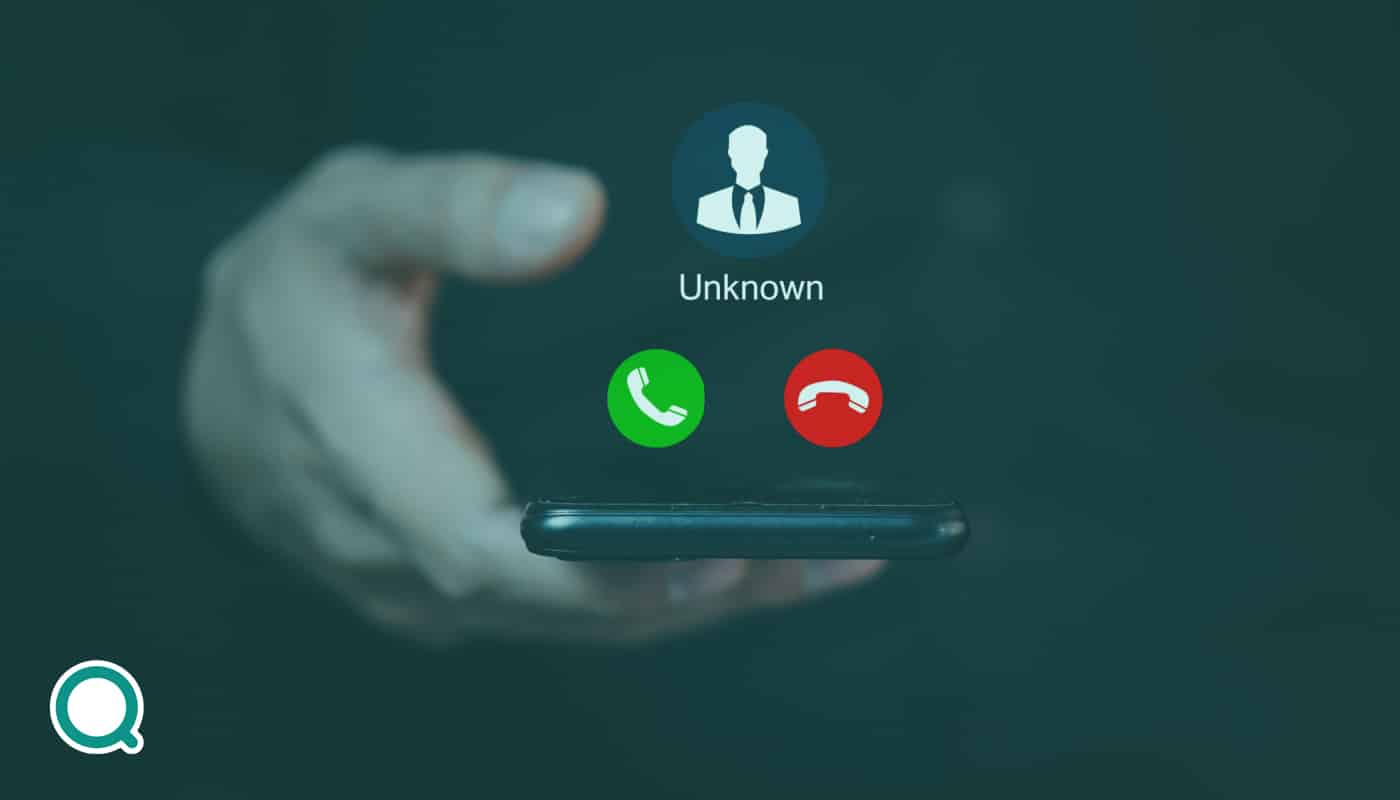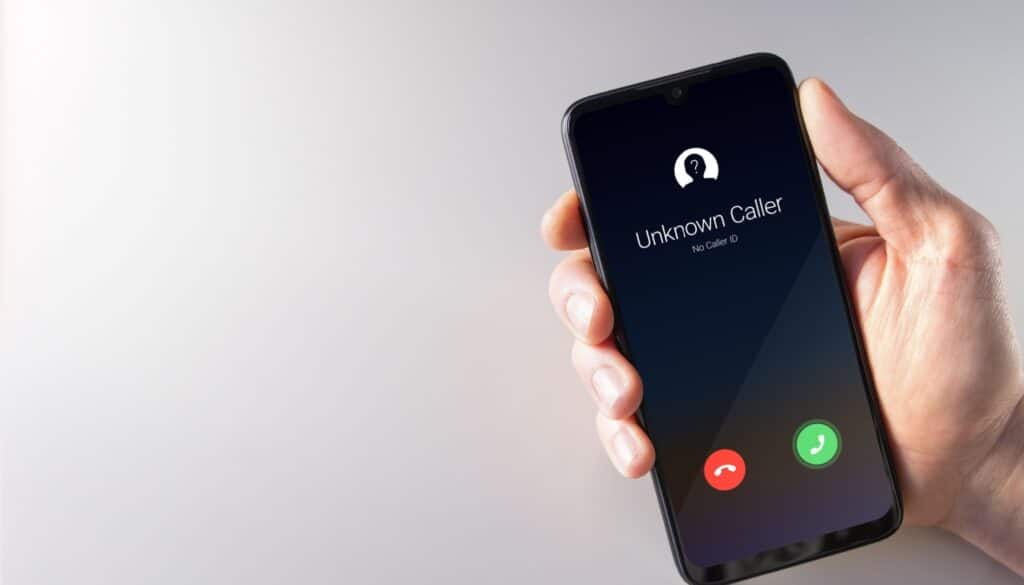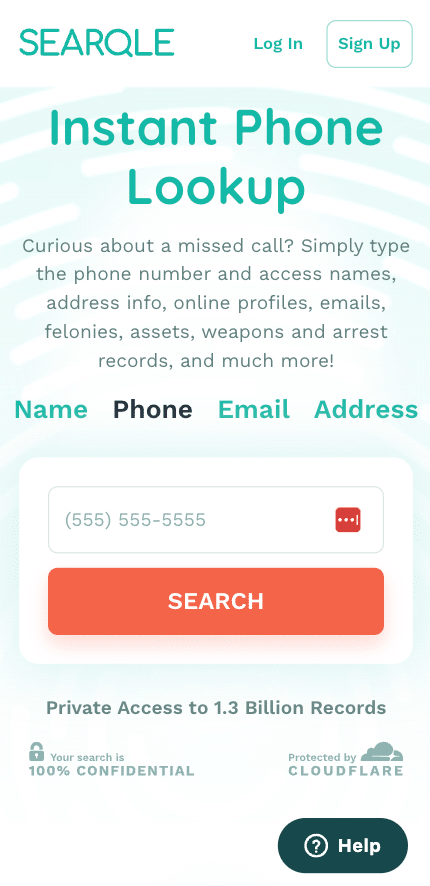Should I Answer Private Numbers?

According to Pew Research, 8/10 Americans have stopped answering their phones when they get a call from an unknown number. With the ability to identify the caller’s number, we can decide whether to answer or not.
But what about private numbers? Private numbers are hidden or blocked from the caller ID of the person receiving the call. They usually appear as “private,” “unknown,” “restricted,” or “no caller ID” on your phone screen.
If you’re reading this article, you probably have a couple of questions on your mind. Why is a private number calling me? Should you answer private numbers? This article will examine some suggestions for making informed decisions about picking up the phone.
Are Private Numbers Dangerous?

Private numbers are not intrinsically dangerous but can pose risks depending on who is calling and their intentions. Some of the possible dangers of answering private numbers are:
- Phone scams are attempts to acquire your personal or financial data, often through impersonation of legitimate organizations or threats of legal action.
- It’s imperative to ask who uses private numbers. Harassers use it to make unwanted or abusive comments by constantly calling. This can include insults, threats, sexual remarks, and loud noises. It may be done for fun, revenge, or intimidation.
What To Do?
If you receive a call from hidden number, you have several options for handling it. Such as:
Check the Call Logs on Your Statement
Check the call logs to see who uses private numbers if you have a monthly phone bill. Some phone companies may include private numbers in the call details, while others may not. If the private number is listed, you can look it up online or report it to the authorities if it is doubtful or suspicious.
Use #69 Or *69 To Return The Mystery Call
If you have a landline phone, you can use the code #69 or *69 to call back the last number that called you, even if it was a private number. However, this may not work if the caller has blocked the return call feature or if the call was from a toll-free number, a payphone, or a cell phone. Also, this feature only works in the United States and Canada.
Trace The Call Using #57 (Or *57 On A Landline)
If you have a landline phone, you can use the code #57 or *57 for a private number lookup. This will send the information about the caller to the phone company, who can then share it with the police if you file a complaint.
However, this may not work if the caller has used spoofing technology or if the call was from a toll-free number, a payphone, or a cell phone. Additionally, depending on your phone service provider, this might cost you money.
Use an App To Unmask Private Calls
There are apps available for smartphones that can teach you how to unmask private numbers and reveal the caller’s identity. Some popular apps for this purpose are TrapCall, Truecaller, and Hiya.
These applications use a database of known spam and scam numbers or a call-forwarding feature that routes the private call to their service and back to your phone with the caller ID information. These apps may require a subscription fee or have some limitations on their features.
Just Skip The Call
If you are not expecting an important call from hidden number or are uncomfortable answering private calls, you can simply ignore it and let it go to voicemail. They will leave a message if the caller is authentic, and you can determine whether to call them back. If the caller is a scammer or a harasser, they will likely hang up and move on to another target.
How To Unmask Private Numbers In 2 Steps
If you want to unmask private numbers and find out who is calling you, you can try the following steps:
Step 1: Use A Private Number Lookup Service
A private number lookup service like Searqle can help you identify the owner of a private number. Enter the digits in the search box to obtain a report with details such as the caller’s name, address, carrier, and more. You can also sign up for a membership to access unlimited searches and attributes.
Step 2: Report The Private Number If It Is Malicious
If you discover that someone who uses private number is a scammer, harasser, or criminal, report it to the authorities and your phone service provider. Additionally, you can block the number from calling again or use a call screening feature to filter unwanted calls. You can save yourself and others from harm by reporting and barring the private number.
Conclusion
Private phone numbers offer benefits but carry risks. Upon receiving a call from hidden number, options include checking call logs, using codes, employing apps, or ignoring it. Searqle-like services can reveal the caller’s identity.
For malicious numbers, reporting and blocking are recommended. Ultimately, answering private numbers is a personal decision that requires balancing factors like safety, privacy, and the possibility of essential calls.


